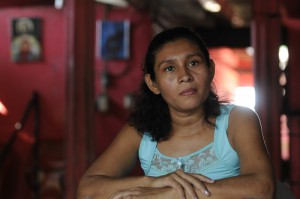The good, the bad, and the really ugly (and reckless) state of the US budget proposals
It’s a bitter reality that people with the least amount of resources to cope with devastating climate impacts are often the hardest hit. We’re reminded of this global injustice as poor and insecure regions of the world experience unrest due, at least in part, to weather extremes that generate food insecurity and as catastrophic events […]

Congressional attempts to cut funding for programs that support vulnerable communities are not only wrong, but reckless. They threaten global security and sustainable growth. Here’s the good, but not good enough, the bad, and the really ugly (and reckless) state of the current US budgeting proposals.
The President’s FY 2012 budget, released on Monday, demonstrates a continued commitment to international climate funding as a whole. This will allow for the President to contribute a portion of his “fast start” finance commitment made in the 2009 Copenhagen Accord (that pledge was for $30 billion annually from developed countries from 2010-2012).
The President’s budget request does demonstrate a continued commitment to supporting agriculture and food security programs. In addition to bilateral support for long-term development through the Feed the Future Initiative, the administration’s request also includes:
• $308 million for the Global Agriculture and Food Security Program Trust Fund. It’s a good start, but even if fully met this will still place the US $100 million short of its commitment announced in 2009 to provide the Trust Fund with $475 million.
• $300 million in the International Disaster Assistance Account for timely response to food crises (read: local and regional purchase of food aid).
While it’s critical that the administration continues to signal support for these programs, the President’s proposed 2012 budget is not nearly enough to save lives and increase food security in some of the world’s most vulnerable, and increasingly unstable, regions. In particular, funding to support climate change prepardness (aka adaptation) and international clean energy development has been decreased from the administration’s FY 2011 request.
Congress has skipped over “the bad” entirely and moved straight to the reckless. Last Friday, House Republicans released their version of a FY 2011 budget extension that would cut international climate finance to the bone. Cuts are made to programs that provide a lifeline to the poorest developing countries hardest hit by climate change and to programs that could benefit US businesses that develop and deploy clean energy and adaptation technologies abroad. And there is no doubt that the 30 percent proposed cut to Development Assistance will mean less money for adaptation, agriculture, and food security.
While international spending lacks popularity at the moment, our congressional leaders should know better. Congress is responsible for looking out for America’s long-term security and economic interests. This proposed budget threatens to cut off our nose to spite our face.